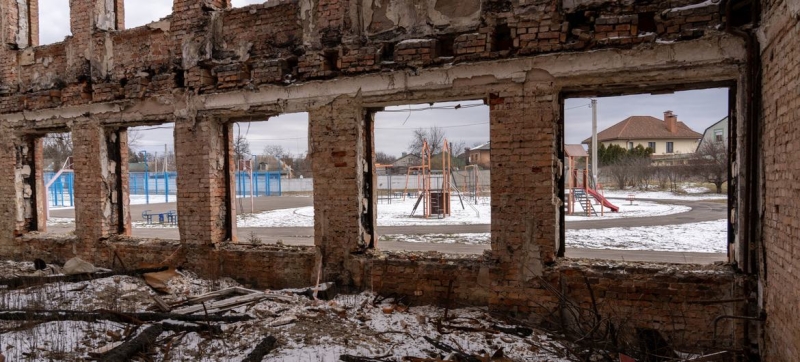
A school in Kharkov, destroyed by shelling. (archive, February 2024)) The Security Council discussed the issue of arms supplies to Ukraine Peace and Security
UN High Representative for Disarmament Izumi Nakamitsu called today’s strikes on Ukraine “unacceptable.” She spoke at a meeting of the Security Council convened at Russia’s initiative, dedicated to the issue of arms supplies to Ukraine.
Strikes on Ukraine
“The scale and scope [of today’s attacks] is horrifying,” she said. “Attacks on energy infrastructure that provides vital government services to the population are a black and white issue and such attacks are simply unacceptable.” She recalled that all parties to an armed conflict are obliged to comply with international law.
As for the transfer of weapons and ammunition to Ukraine “in the context of a full-scale invasion of Ukraine launched by the Russian Federation in violation of the UN Charter and international law,” then, according to Nakamitsu, it continues.
What kind of weapons does Ukraine receive
Most of the information from governments about their transfer of weapons systems and ammunition to Ukraine is available in the public domain sources, the UN representative noted. These supplies, she continued, reportedly included heavy conventional weapons such as battle tanks, armored combat vehicles, combat aircraft, helicopters, large-caliber artillery systems, missile systems and unmanned combat aerial vehicles, as well as remotely controlled munitions, small arms and light weapons and ammunition for them.
Reports of the use of anti-personnel mines and the transfer and use of cluster munitions in Ukraine are of deep concern
There have also been reports of that states are transferring or planning to transfer weapons such as unmanned aerial vehicles, ballistic missiles and ammunition to the Russian military, and that these weapons have been used in Ukraine. “I strongly state that any arms transfer must be carried out within the framework of the relevant international legal framework, including, of course, the relevant Security Council resolutions,” the High Representative for Disarmament emphasized.
“Reports related to the use of anti-personnel mines and the transfer and use of cluster munitions in Ukraine are deeply concerning,” she continued. – Anti-personnel mines, with their indiscriminate nature, have no place in our world; their eradication is imperative and their use must be unequivocally condemned.” She recalled that unexploded cluster munitions have hampered socio-economic development in affected countries and damaged entire communities already traumatized by war. “The use of these inhumane weapons, which have serious and long-term humanitarian consequences, must be stopped immediately,” Nakamitsu said.
Prevent leaks
The supply of arms and ammunition to parties to any armed conflict raises serious concerns due to the potential for escalation of violence and risks of leakage of weapons and ammunition, said the High Representative. States importing and exporting weapons must act responsibly at every stage of the arms and ammunition supply chain to prevent diversion, trafficking and misuse, she said. Pre-transfer risk assessment, labeling and record-keeping practices, and traceability capabilities are therefore of paramount importance.
In addition, she said, to effectively combat sabotage, illicit trafficking and misuse of weapons and ammunition, compliance with and effective implementation of legally binding instruments such as the Trade Treaty is necessary weapons and the Firearms Protocol.
